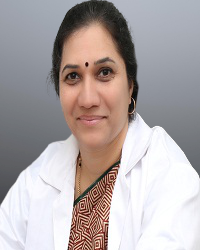Best Neurologist in Madurai
Dr Karthik S N
13 years, NeurologistMBBS, MD(Gen.Med), DM(Neurology)
Language: English,Hindi,Tamil,Bangla
![]() Apollo Speciality Hospitals Madurai
Apollo Speciality Hospitals Madurai
Dr Karthik S N is an experienced Interventional based in Madurai. Dr Karthik S N graduated from MBBS, MD(Gen.Med), DM(Neurology) ...
(12:30 -16:00)
Dr Suresh P
9 years, NeurologistMBBS MD (Neurology), SCE (Neurology) UK
Language: English,Tamil
![]() Apollo Speciality Hospitals Madurai
Apollo Speciality Hospitals Madurai
Dr Suresh P is an experienced Interventional based in Madurai. Dr Suresh P graduated from MBBS MD (Neurology), SCE (Neurology) UK ...
(12:30 -16:30)
Dr Bharathi Sundar M
18 years, NeurologistMBBS, DM(Neurology)
Language: English,Hindi,Telugu,Tamil,Kannada
![]() Apollo Speciality Hospitals Madurai
Apollo Speciality Hospitals Madurai
Dr Bharathi Sundar M is an experienced Interventional based in Madurai. Dr Bharathi Sundar M graduated from MBBS, DM(Neurology) ...
(13:00 -14:00)
Frequently Asked Questions for Neurologists in Madurai
Neurologists use two main tests to diagnose epilepsy: Electroencephalography (EEG) and brain scans. EEG measures the electrical activity in the brain and can detect abnormal electrical patterns that are related to seizures. Brain scans, such as Magnetic Resonance Imaging (MRI), are used to look for abnormalities in the brain that may be causing seizures, such as tumors, infections or blood vessel abnormalities.
Nerve damage can be caused by various factors including autoimmune diseases, cancer, trauma or compression of nerves, diabetes, drug side effects, toxic substances, motor neuron diseases, nutritional deficiencies, and infectious diseases.
Neurology has several subspecialties. Each subspecialty focuses on a specific area of the nervous system and requires specialized training to diagnose and treat related conditions. Examples of subspecialties include headache medicine, neuromuscular medicine, neurocritical care, neuro-oncology, geriatric neurology, autonomic disorders, vascular (stroke care), child neurology, intervention neuroradiology, and epilepsy.
Yes. Neurologists are the medical professionals who address many neurological problems like seizures. Seizure episodes arise from abrupt surges of electrical activity within the brain, which happens due to conditions like epilepsy. Occasionally, neurologists may direct individuals to specialized epilepsy centers to undergo a thorough assessment and receive additional treatment options.
Neurologists are involved in the diagnosis and treatment of brain tumors, but they usually work in conjunction with a team of other specialists such as neurosurgeons, oncologists, and radiation therapists. Neurologists may perform a neurological exam to assess brain function, order imaging tests such as MRI or CT scans to detect a brain tumor, and prescribe medications to manage symptoms such as seizures and headaches.
A brain doctor is typically called a neurologist or a neurosurgeon. Neurologists specialize in diagnosing and treating conditions related to the brain and nervous system, while neurosurgeons are trained to perform surgical procedures on the brain and nervous system.
Neurologists treat headaches by first diagnosing the type of headache through a medical history, physical exam, and neurological tests. They may perform additional tests to rule out other possible causes of headaches. Once a diagnosis is made, they may prescribe medications or recommend lifestyle changes to help manage the headaches.
Yes, a neurologist can treat headaches, particularly migraines. A primary care doctor may refer a patient to a neurologist if they suspect the headache may be related to a more serious underlying condition.
Yes, a neurologist can treat erectile dysfunction if it is caused by neurologic disease. Neurogenic erectile dysfunction is caused by damage to the nerves that supply blood to the penis, and a neurologist can help diagnose and treat this condition. However, if erectile dysfunction is caused by other factors such as hormonal imbalances or psychological issues, a neurologist may refer the patient to another specialist.
Neurologists treat a range of conditions related to the brain and nervous system, including Alzheimer’s disease, Parkinson’s disease, multiple sclerosis, epilepsy, stroke, headaches, brain and spinal cord injuries or infections, brain tumors, ALS, peripheral neuropathy, pinched nerves, and tremors.
Neurologists diagnose and treat medical conditions related to the brain and nervous system, while neurosurgeons perform surgical procedures to treat chronic conditions that affect the normal functioning of the nervous system. Neurologists treat a broad range of disorders, including neurodevelopmental disorders, learning disabilities, and subsidiary conditions that affect the central nervous system, while neurosurgeons focus on conditions such as Parkinson’s disease, aneurysms, and birth defects that may require surgery.
The first signs of nerve damage depend on the location and type of nerves affected. Autonomic nerve damage may cause light-headedness, constipation, and sexual dysfunction. Motor nerve damage may cause weakness, twitching, and paralysis. Sensory nerve damage may cause numbness, tingling, and burning sensations. Some people may experience symptoms indicating damage to multiple types of nerves at once.
A neurologist is a medical doctor who specializes in diagnosing, treating, and managing disorders of the brain and nervous system, which includes the brain, spinal cord, and nerves. They have expertise in understanding the anatomy, function, and conditions that affect the nervous system.
You may have to consider visiting a neurology specialist if you experience the following symptoms:
Memory disturbances,
Loss of consciousness,
Seizures,
Numbness,
Tingling sensations,
Facial asymmetries,
Muscle weakness,
Tremors,
Slowness in movement,
Sometimes if your physician suspects a neurological problem, they may also refer to one.
During the initial visit with a neurologist, they typically ask for a detailed medical history and perform a neurological examination. This may include assessing your coordination, reflexes, strength, sensation, and vision. Depending on your symptoms, the neurologist may also order further diagnostic tests, such as blood work or imaging studies like an MRI or CT scan. Based on their findings, the specialist will make a diagnosis and develop a treatment plan tailored to your specific needs.
Related Procedures in Madurai
Related Treatments in Madurai
- Doctors for Alzheimers Disease Treatment in Madurai
- Doctors for Amyotrophic Lateral Sclerosis Treatment in Madurai
- Doctors for Aneurysms Treatment in Madurai
- Doctors for Aphasia Treatment in Madurai
- Doctors for Bells Palsy Treatment in Madurai
- Doctors for Benign Essential Blepharospasm Treatment in Madurai
- Doctors for Dementia Treatment in Madurai
- Doctors for Encephalopathy Treatment in Madurai
- Doctors for Epilepsy Treatment in Madurai
- Doctors for Erectile Dysfunction Treatment in Madurai
- Doctors for Headache Treatment in Madurai
- Doctors for Huntingtons Disease Treatment in Madurai
- Doctors for Hydrocephalus Treatment in Madurai
- Doctors for Hyperhidrosis Treatment in Madurai
- Doctors for Mild cognitive impairment Treatment in Madurai
- Doctors for Myasthenia Gravis Treatment in Madurai
- Doctors for Narcolepsy Treatment in Madurai
- Doctors for Nystagmus Treatment in Madurai
- Doctors for Obstructive Sleep Apnea Treatment in Madurai
- Doctors for Orthostatic Hypotension Treatment in Madurai
- Doctors for Parkinsons Disease Treatment in Madurai
- Doctors for Peripheral Neuropathy Treatment in Madurai
- Doctors for Radiculopathy Treatment in Madurai
- Doctors for Restless Legs Syndrome Treatment in Madurai
- Doctors for Sarcoidosis Treatment in Madurai
- Doctors for Sciatica Treatment in Madurai
- Doctors for Spasticity Treatment in Madurai
- Doctors for Stroke Treatment in Madurai
- Doctors for Transient Ischemic Attack Treatment in Madurai
- Doctors for Tourette Syndrome Treatment in Madurai
- Doctors for Tremor Treatment in Madurai
- Doctors for Trigeminal Neuralgia Treatment in Madurai
- Doctors for Vertigo Treatment in Madurai
Other Specialities in Madurai
- Best Urologist in Madurai
- Best Pulmonologist in Madurai
- Best General Physician in Madurai
- Best Endocrinologist in Madurai
- Best Cardiologist in Madurai
- Best Oncologist in Madurai
- Best Radiologist in Madurai
- Best Orthopedics in Madurai
- Best Hepatologist in Madurai
- Best Gynecologist in Madurai
- Best Dermatologist in Madurai
- Best Gastroenterologist in Madurai
- Best Psychologist in Madurai
- Best Ent Specialist in Madurai
- Best Nephrologist in Madurai
- Best Rheumatologist in Madurai
- Best Diabetologist in Madurai
- Best Psychiatrist in Madurai
- Best Neonatologist in Madurai
- Best Dentist in Madurai
- Best Dietitian in Madurai
- Best Haematologist in Madurai
- Best Pediatrics in Madurai
- Best General Surgeon in Madurai
Top Hospitals in India
- Hospitals in Ahmedabad
- Hospitals in Bangalore
- Hospitals in Bhubaneswar
- Hospitals in Bilaspur
- Hospitals in Chennai
- Hospitals in Delhi
- Hospitals in Guwahati
- Hospitals in Hyderabad
- Hospitals in Indore
- Hospitals in Kolkata
- Hospitals in Madurai
- Hospitals in Mumbai
- Hospitals in Mysore
- Hospitals in Nashik
- Hospitals in Noida
- Hospitals in Visakhapatnam
- Hospitals in Lucknow
- Hospitals in Bhopal
- Hospitals in Karur
- Hospitals in Kochi
- Hospitals in Nellore
- Hospitals in Trichy
- Hospitals in Kakinada
© Copyright 2024. Apollo Hospitals Group. All Rights Reserved.



 Morning Slots
Morning Slots AFTERNOON Slots
AFTERNOON Slots





